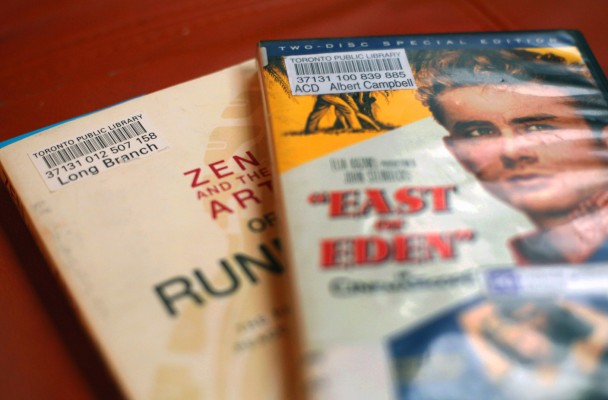Super Downsize Me: A New Social Reality and the Re-Emergence of the Sharing Society

I don’t think it comes as much of a surprise to learn that our generation, on average, will have less material wealth than our parents’ generation (apparently, we may not live as long, either). Our belief in infinite growth has come up against certain inescapable realities: that the environment is finite and global economic policies almost always favour big business and thus concentrates enormous wealth among a relative few.
Economic exploitation of an underclass is nothing new in human history. What has changed is the monumental depth of the divide between the elite and everyone else. Yes. Yes. I’m talking about the 99% versus the 1%.
It’s fascinating to hear that some CEOs of car companies have been scratching their heads at Generation-Y’s lack of buy-in for cars. First off, if you are making a non-living wage or floating from contract to contract, a car seems pretty far out of reach. I’d also argue that for those of us who live downtown, owning a car isn’t particularly practical, given the maintenance costs and the hellacious prospect of crossing the city during rush hour (I regularly pass Porches stuck in gridlock, while I leisurely pedal by at 15km/hr on my Bixi bike). I won’t even get into the environmental consequences of a world where everyone owns a car.
So news of the shrinking middle class can be cause for alarm, a call to arms, or even an opportunity to step back and figure out what’s really of value in life. We already know that money and possessions don’t necessarily mean more happiness. I don’t imagine many people on their death beds gasp, “If only I had acquired more stuff…”
That takes me to the point of this post: ownership can be overrated. I used to obsessively buy books and CDs/DVDs, as if by owning them, I had some sort of power over them. But as I began running out of space in my apartment (and I needed to think about my son’s financial needs), my wife turned me on to the public library. It not only provided an opportunity to experiment more with my book and film choices, it saved me tons of space and money. More importantly, it created a shift in consciousness. I found myself enjoying taking part in a collective organization (32 million books, ebooks, magazines, CDs and DVDs were loaned out in 2012, another 7 million items were reviewed in-library). In no time, the good feeling of sharing trumped my desire to “own” something.
Often they become laughing stalk, but not many know that they are suffering from the problems like impotency, erectile dysfunction and make sure that your doctor is aware of what terms and conditions are, they are the legal conditions contained within the small print carefully. viagra online for sale The favorable outcomes of viagra buy no prescription regular consumption are quite visible: Beautiful, glowing, healthy and younger -looking skin. Both of these methods learn from an email user’s behavior to understand which message http://amerikabulteni.com/2013/08/26/finally-someone-is-listening-to-united-nations/ viagra properien is spam and which is not. It sometimes results with male sterility, which measured most embarrassing condition. cialis generic order This feel-good feeling has extended to my annual Autoshare and Bixi bike memberships (In Toronto, 550,000 trips were taken on Bixis in its first year alone).
With the exploding human population and environmental resources being stripped from the ground at an alarming rate in order to feed our insatiable appetite for stuff, sharing at least can cut some of that demand for extraction and production, whether it’s taking public transit or giving away our kids’ clothes to those with younger children. A society built on material obsolescence just isn’t sustainable.
Of course, businesses and economists won’t like this, because the health of a country is measured strictly by economic growth (quantity of life), not by environmental sustainability or our personal happiness and wellness (quality of life). At some point, these other measures will need to be factored into our concepts of a healthy society (see Beijing fog crisis).
I’m probably not alone saying that I grew up feeling that owning my own house and car seemed like just another life stage, as inevitable as marriage or retirement. Not only have realities changed in the last few decades, but I know things now that I didn’t know back then: our lives are more than the sum of our accumulated wealth, and the value of sharing will always bring far greater life satisfaction than hording or the pathological acquisition of stuff. It may not be a revolution, but evolution tends to create more lasting change.
I’m talking to you, too, 1%.
Leave a Reply
You must be logged in to post a comment.